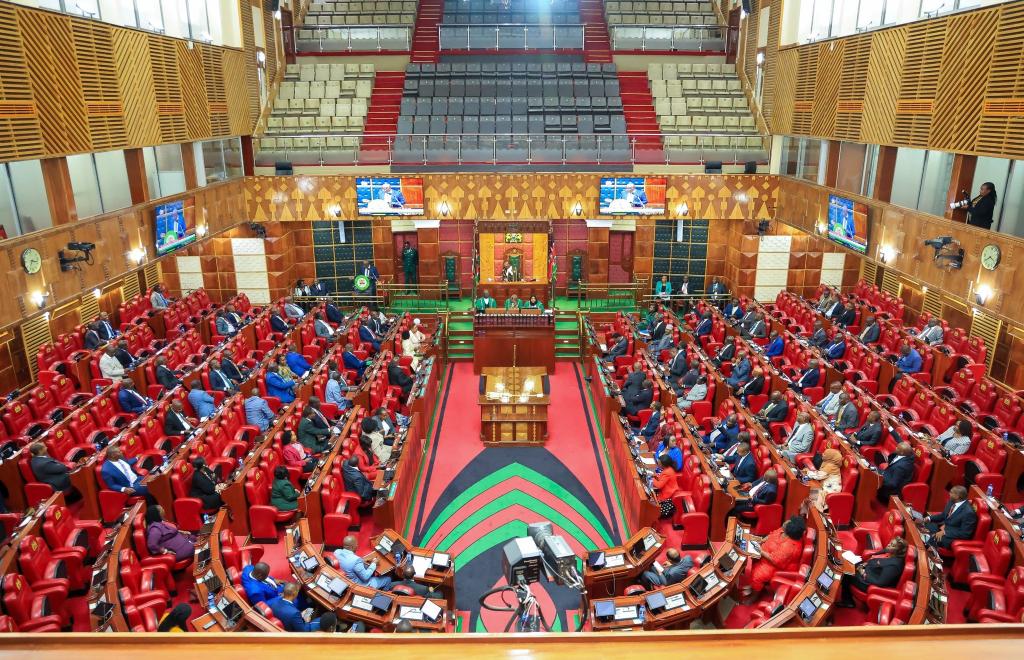The Teachers Service Commission has told the National Assembly it is still paying hardship allowances based on a 1997 legal framework, as it waits for further direction from the Public Service Commission on how to update the list of designated hardship areas.
Appearing before the National Assembly Implementation Committee, TSC’s Acting Chief Executive Officer Eveleen Mitei said the Commission has not made any changes to the hardship allowances or areas.
“We are still paying hardship allowance as per Legal Notice No 534 of 1997. We have been informed that the Public Service is in the process of reviewing this, but as of now, we are still using the legal notice to pay the allowance,” said Mitei.
Her response came after committee chairperson Raphael Wanjala questioned the criteria used to determine eligibility, pointing out that the system appeared unfair and created staffing problems in some regions.
“Which criteria are you using to give this hardship allowance? You find that one area in a constituency is designated as hardship, while another is not. Teachers therefore seek to work in areas with hardship allowance, leaving the other areas understaffed,” Wanjala said.
He went further to allege that some teachers bribe TSC officers to be posted to hardship areas, where they do minimal work.
“There are schools with many idle teachers who spend their time on TikTok, having allegedly bribed TSC officers to be posted to hardship areas,” he added.
Other members of the committee echoed the concerns, citing teacher shortages in non-hardship areas. Kajiado East MP Kakuta Ole Maimai said schools in urban areas of his constituency had more teachers than they needed, while rural ones had too few, largely due to the hardship allowance imbalance.
In May, Prime Cabinet Secretary Musalia Mudavadi told the House that the government was planning to adjust the classification of hardship areas, based on findings by an Inter-Agency Technical Committee. “I wish to inform the House that the implementation of the Inter-Agency Technical Committee report will reduce the financial implication of hardship allowance payments from Sh25 billion to Sh19 billion per annum, thereby saving the government Sh6 billion. This is due to the proposed harmonisation of designated hardship areas in the public service,” said Mudavadi.
The committee behind the report had held discussions with stakeholders to come up with a new policy framework for identifying hardship zones and paying allowances more fairly. But the government paused its implementation in July, following resistance from teachers, civil servants, and elected leaders.
Public Service Cabinet Secretary Geoffrey Ruku said the report was being reviewed again to allow for more discussions. “We have decided to hold on to the report for now. We need to re-evaluate it together with stakeholders and elected leaders before its implementation,” he said.
That suspension has now become a new point of tension in Parliament. Last week, Nyando MP Jared Okello questioned why the government halted the process without consulting the House, despite MPs having raised the issue earlier. “I have read in the media that the government has halted the implementation of the report, yet we, who raised the matter in this House, have not been updated,” said Okello.
He brought the issue to Speaker Moses Wetang’ula, who advised him to file a formal request so the matter could be addressed by House leadership.
At the moment, the Teachers Service Commission recognises 44 hardship zones, the Judiciary lists 21, and the wider civil service, including counties and state agencies, acknowledges only 16.
Lawmakers say this inconsistency continues to fuel unfairness and staffing gaps, especially in schools, and want a comprehensive solution to the classification system.

